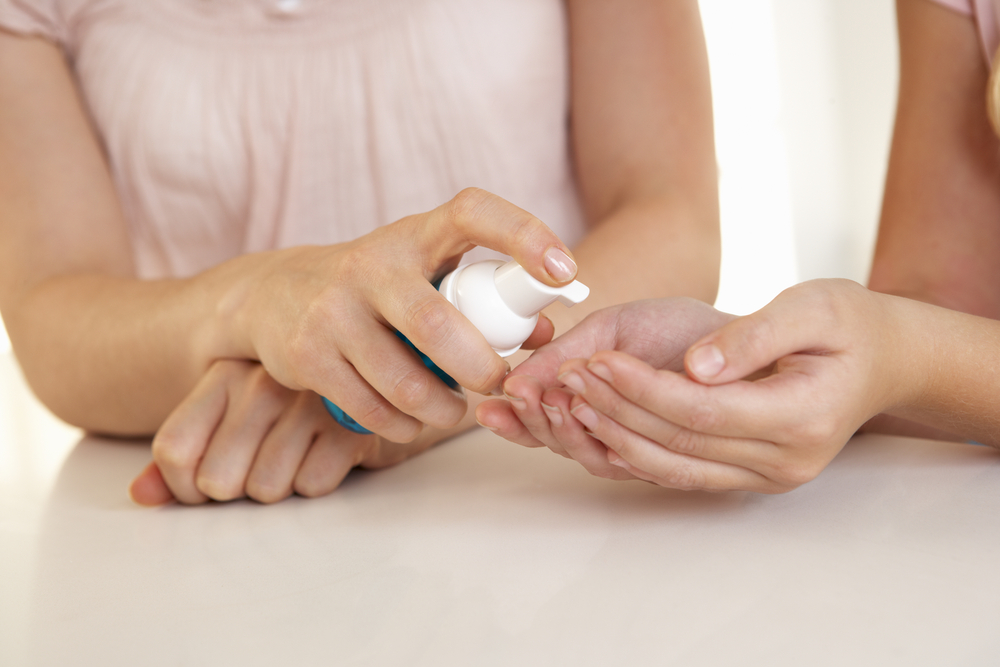2020 could be safely dubbed the Year of Hand Sanitizer, but it’s looking like the industry will be safe well into 2021 as well. But the typical sanitizers we use to religiously clean our hands come with a disappointing number of downsides as well. That mostly comes down to the high volume of alcohol in most commonly found sanitizers.
Why Avoid Alcohol-Based Sanitizers
Alcohol is excellent at killing bacteria. But that abrasiveness doesn’t do it any favors when it comes to its relationship with your skin. Dryness and conditions similar to eczema can be caused by overexposure to alcohol-based hand sanitizers, and those issues only become worse for those with already sensitive skin.
It Could Cause Alcohol Poisoning
You aren’t at risk for alcohol poisoning unless you ingest it orally, but that still makes it a potential liability in homes with curious children or teenagers. While not a high risk, there have been cases of teenagers being hospitalized for ingesting hand sanitizer.
It Kills With Impunity
Alcohol is commonly used in hand sanitizers because of what a powerful antibacterial it is. But to some extent, it’s too powerful of an antibacterial. When used too much, it has a tendency to kill not just harmful bacteria but also the benign microbes that help your body run at full functionality. This could put you at greater risk for a skin infection and potentially have a negative impact on your immune system.
They Aren’t a Safe Choice For Pets
Hand sanitizer is an obvious poison risk when ingested by dogs or cats, but the CDC recommends against using an alcohol-based sanitizer on your pet at all. They suggest that you thoroughly rinse your pet after any contact with the skin or fur.
What to Look For
Alcohol is such a popular choice for a hand sanitizer base ingredient because – despite the adverse side effects – it’s incredibly effective at what it does. And the market for hand sanitizers that don’t include alcohol is broad and inconsistent in the effectiveness of the products available. But there are a few things you can check for when shopping for a hand sanitizer free of alcohol.
Benzalkonium Chloride
The FDA has made it much easier to figure out what ingredients are safe and what isn’t by limiting the base ingredient for hand sanitizers to three options. Two of these are alcohol-based, and the other is benzalkonium chloride. If you want a hand sanitizer that doesn’t have an alcohol-base, this salt-based solution is the only reputable choice to consider.
Moisturizers
The most common issue you’re likely to face with an alcohol-based sanitizer is drying and irritation of the skin – and while it’s less of a problem with non-alcoholic solutions, it’s still something that you need to account for. Fortunately, any sanitizer brand worth their salt will include moisturizers to counteract the effects of benzalkonium chloride and any other acids. If you want the best, look for hand sanitizer brands that use all-natural moisturizing ingredients like coconut oil, hemp seed oil, and aloe vera.
Natural Acids
Acids often have a terrible name, but they’re essential and recurring components in our physiology. That’s why you should look for sanitizers that include acids that naturally occur in the body. Inclusions like hyaluronic acid simply support the acids that already exist in the body and help provide a youthful and healthy glow to your skin.
Hand sanitizers without alcohol are still somewhat off the radar, but they offer a viable solution to an everyday issue. But formulas like those for Handvana hand sanitizer demonstrate possible solutions that don’t require alcohol.
This is a Contributor Post. Opinions expressed here are opinions of the Contributor. Influencive does not endorse or review brands mentioned; does not and cannot investigate relationships with brands, products, and people mentioned and is up to the Contributor to disclose. Contributors, amongst other accounts and articles may be professional fee-based.

